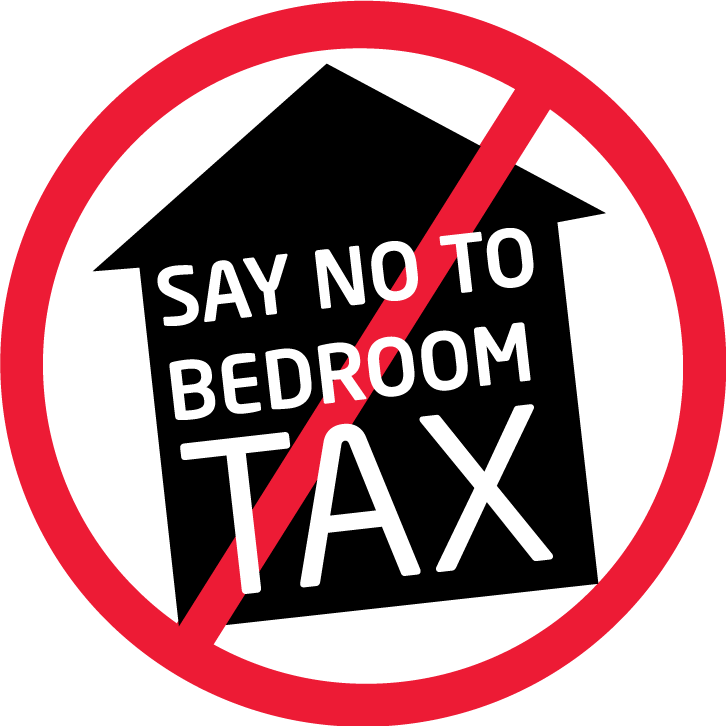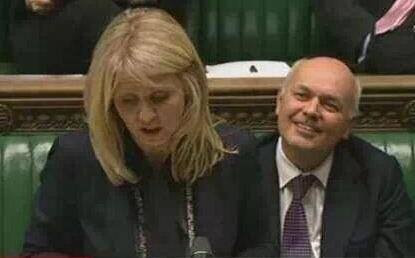
Recent legal judgements may make the collection of the hated bedroom tax all but impossible.
..
Crucial definitions of what can and cannot be classed as a bedroom may make the legislation unworkable in a huge embarrassment for the DWP and a marvellous victory for people power.
Overview:
A Tenant had the bedroom tax applied as his landlord and the local council said that he was living in a four bedroom house. The tenant argued that the two of the rooms were too small (60.7 and 69.4 sq/ft) to be classed as bedrooms and that they were used as an art room and a study.
At a tribunal hearing, the tenant raised the precedent from the recently announced Bolton Upper Tribunal. The judge was not aware the recent Bolton Upper Tribunal case for the definition of bedroom and accordingly consulted this case before making his decision. The tenant won their appeal and they are now wholly exempt from the bedroom tax.
The judge ruled that the house can only be considered as a two bedroom house and that the ‘extra’ rooms were too small to let out to a lodger.
Two paragraphs contained in the judgement may signal the death of the bedroom tax.
..
Paragraph 13 of the judgement concluded that:
‘Bedroom’ is not defined by the legislation. This has most recently been pointed out in the Upper Tribunal decision 2014 UKUT 48 AAC. A(t) paragraph 19 of that decision the Tribunal helpfully refer to various definitions of a bedroom.”
and crucially paragraph 19 concluded that:
“The Tribunal finds that neither of the two smallest rooms are bedrooms. They do not contain beds, they are not used for sleeping, they can only be occupied by a child under 10, a half person…”
You can view the legal documents here.
This has far reaching ramifications for the bedroom tax which in the terms of the judgement may have been wrongly applied to pretty much everyone subject to it.
Consider:
(a ) No local council can now make a bedroom tax decision without first having inspected the property involved. A huge and costly undertaking for which structures, staff and funding do not exist.
(b) All bedroom tax decisions prior to the judgement are potentially vulnerable to appeals, as there is no way that any council could have known whether rooms were used or furnished as a bedroom.
(c) One could also argue on the basis of the new judgement that under occupancy is impossible. How can a single person have three bedrooms at all? Nobody can sleep in multiple bedrooms simultaneously, hence they can only have one ‘bedroom’.
(d) Once the expected tidal wave of appeals starts to loom on the horizon and the cost implications of house inspections becomes clear – its hard to see how much if any money will be actually saved by the DWP – further undermining the legitimacy of the bedroom tax.
The Haze doubts that this story will be covered by the mainstream media so as usual its up to us.
The only way the bedroom tax will survive these historic judgements is if people don’t find out about it. So PLEASE share this news far and wide.
..
see also: Inciting hated against the poor and hungry, a new British bigotry




I don’t wish to be a killjoy but I’m sure IDS will just run back to parliament to retrospectively change the law to suit his needs.
You may be right Richard – and the thought had occurred.
I lack the expertise to know how easy that is to do – they are running out of time before the 2015 election though, I am not sure the coalition will want to be fiddling with the Bedroom Tax in Parliament during an election campaign – and Labour is committed to repealing it.
I will refer to the issues as set out above
(a) local authorities will continue to apply the bedroom tax based on the information provided by social landlords and instructions from the DWP in other words Duncan Smithh. There is no requirement that the local authority must seek the measurement of each room.
(b) the Bolton decision is the trigger. It does not follow that decisions in the Upper Tribunal act retrospectively for all cases. Obviously it affects the appellant retrospectively and other appellants who have made appeals on the same subject
(c) It could be argued that under occupancy is impossible. This creates a position whereby the terms 3 bedroom houses, 4 bedroom house etc become obsolete with the obvious comment that this becomes absurd
(d) I concur with this point. However, it’s proceed with caution. The arguments about room size and the definition of a bedroom are welcome but now the two arguments are being run side by side. Room size is under the 85 Act, the definition of a bedroom is by virtue of the Bolton decision. In my opinion running a case citing the 2 arguments leaves it wide open to challenge by the DWP. The 85 Act as well as defining the size of bedrooms also includes the prospect of using the living room as a bedroom with the obvious harm this could do to the progress made so far.
For example, a tribunal accepts the argument on the definition of a bedroom then turns to the size argument by virtue of the 85 Act. By submitting the size argument it defeats the use of room argument because there is an implied acceptance that the property has 2,3 or more bedrooms. One defeats the other with this approach.
thanks for that input Terry – much appreciated.
I think we all proceed with caution on this one – but with added hope for now.